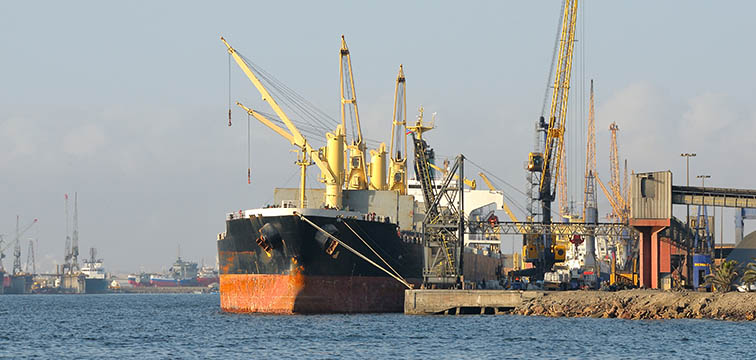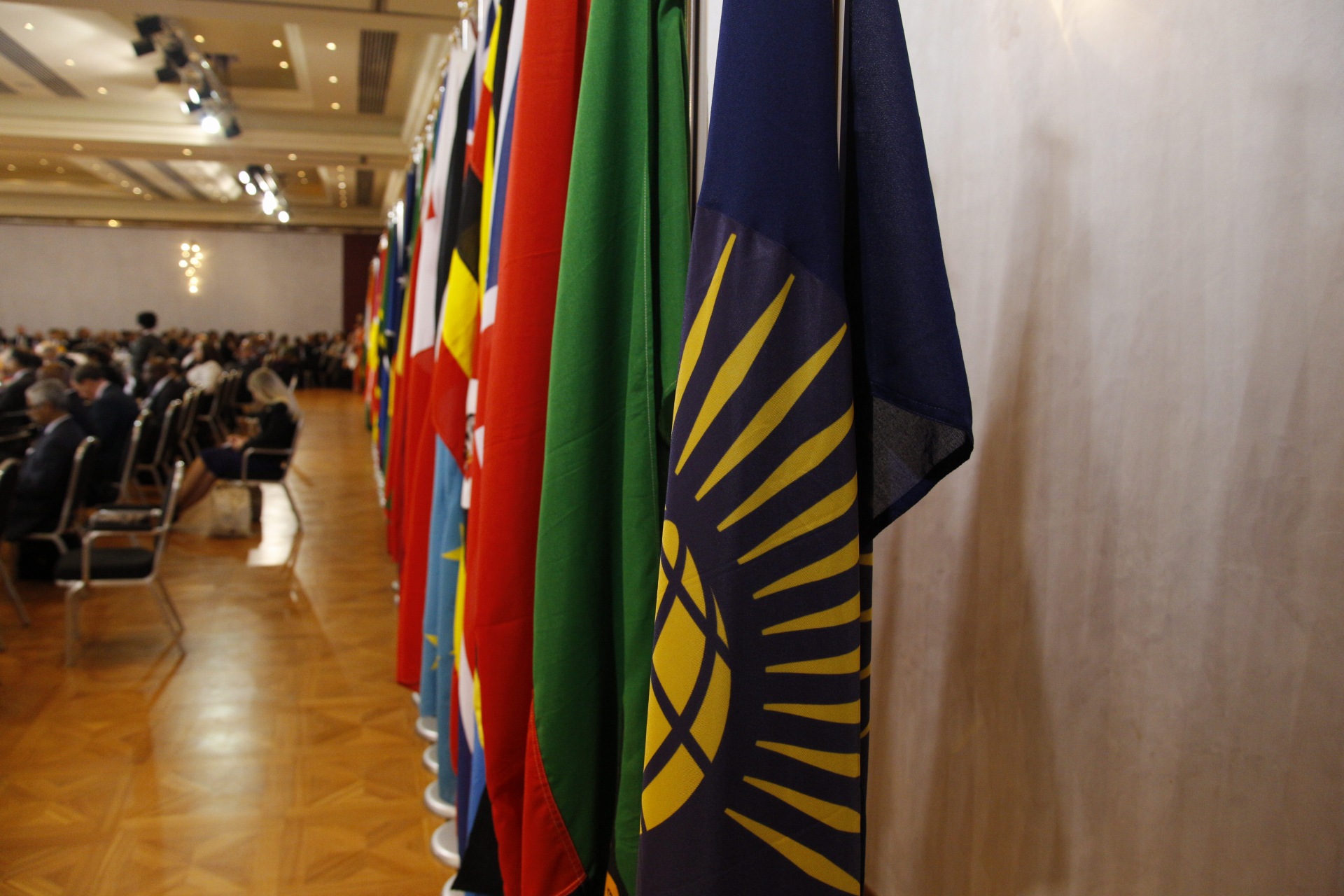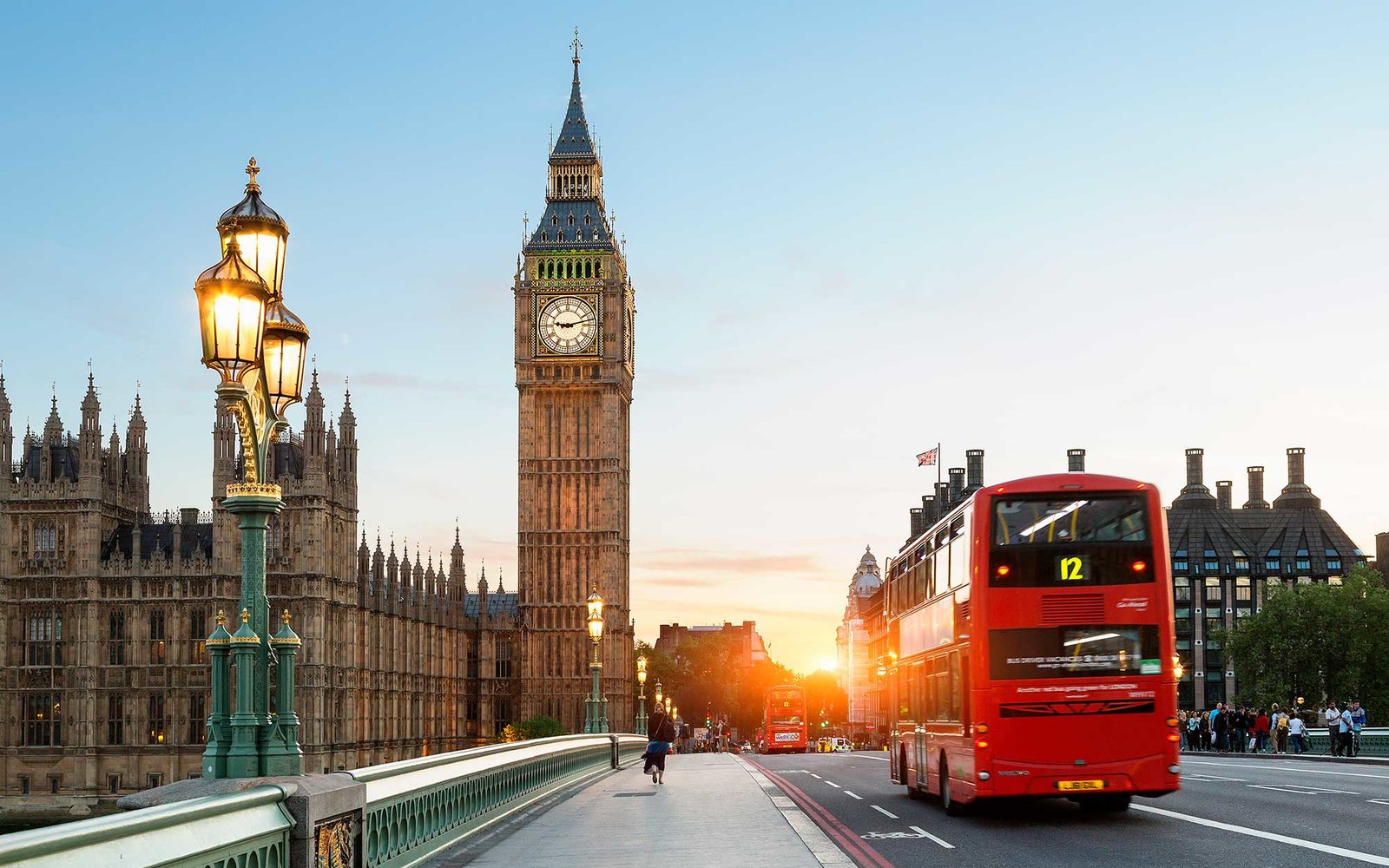

The Mission was established in 1990 after our country attained its independence. The Mission is responsible for the promotion of bilateral relations between the United Kingdom of Great Britain and Northern Ireland, Ireland, Malta, Cyprus and Greece, although the High Commissioner is still to be accredited to Cyprus and Greece.

Trade between Namibia and the United Kingdom is flourishing as evidenced by our exports to United Kingdom of table grapes, dates, beef, fish and beer. Exports from the United Kingdom to Namibia consist, amongst others, of heavy machinery and financial services.
Trade
The countries of accreditation present multiple opportunities for our country. This Mission is concurrently accredited to Cyprus, Greece, Ireland and Malta, as well as covering London-based Multilateral organisations, such as the International Maritime Organisation (IMO) and the Commonweatlh.
Accredited countries
The Mission is well placed to facilitate high-level visits and exchanges between public bodies in Namibia and their counterparts in the U.K., including with the ComSec and the IMO. These visits and exchanges tend to be aimed at gaining practical information and good practice necessary to improve organisational efficiency, service delivery and overall performance.
Helping VisitorsUp until the early 2000s, the Mission has had the privilege of hosting representatives from the Ministry of Trade and Industry as well as from the Namibia Tourism Board (NTB). Thus, the Mission was fully equipped and enabled to promote trade and investment promotion as well as to increase the number of tourists visiting our country. Additionally, Air Namibia was fully represented by sales personnel. Currently, both the services that used to be rendered by NTB and Air Namibia have been outsourced to local companies.
Since its establishment, there have been six (6) High Commissioners at the Mission. In addition to the High Commissioner, who is the Head of the Mission, there are five (5) staff members deployed from Namibia and nine (9) locally recruited staff. These staff members are performing duties in areas such as administration and personnel management, promotion of bilateral and multilateral relations, trade and investment facilitation, maintaining people-to-people contacts via non-state and voluntary organisations such as the Friends of Namibia and The Catherine Bullen Foundation.
A staff member from the Ministry of Works & Transport has recently joined the Mission to advance the country's interest in the International Maritime Organisation (IMO). Of course, given the importance of London as a financial and logistic hub of the world, there is a dire need for the services of a Trade Attaché. In this regard, discussion is being pursued with the Ministry of Industrialisation, Trade and SME Development.
In countries of secondary accreditation such as Malta and Cyprus, Honorary Consuls are in place to advance our country’s interests on a voluntary basis. In the United Kingdom, the Honorary Consuls for Scotland is very active on the educational and diplomatic front, whilst work is progressing well to appoint the same for Northern Ireland, Wales and Greece.
In the educational sector, the Mission has been working hard to maintain long-term twinning agreements between local schools and their counterparts in Namibia. There is a twinning agreement between Dr Alpo Mauno Mbamba Junior Secondary School (Kavango East), and Kutenhoas Primary School (//Kharas) with the ACS Cobham International School in Surrey. The Holy Trinity Church of England Primary School- Dobcross in Oldham is twinned with the Malangu Primary School and the Omungolyo Combined School is twinned with St Chad Church of England Primary School in Saddleworth. Both these schools are in the Ohangwena Region. The Catherine Bullen Foundation has over the years been rendering human and material support to both the Eiseb Primary School Hostel (Omaheke) and The Catherine Bullen Medical Centre in Oshivelo (Oshikoto).
On the education front, the Commonwealth makes available up to 15 scholarships to Namibian nationals annually to pursue postgraduate studies at universities in the UK. The Chevening Scholarships program run by the British High Commission to Namibia provides an additional seven (7) scholarships. More needs to be done to ensure that all these scholarships are taken up.
Namibia is designated by the Bretton Woods institutions (the International Monetary Fund and the World Bank) as a “middle income” country and this reduces the amount of aid available to our country, although there are still several United Kingdom projects active in Namibia under the good auspices of the British High Commissioner in Namibia.
Trade between Namibia and the United Kingdom is flourishing as evidenced by our exports to United Kingdom of table grapes, dates, beef, fish and beer. Exports from the United Kingdom to Namibia consist, amongst others, of heavy machinery and financial services. Investment from the United Kingdom is significant in the mining sector, including exploration of oil and gas. There is a double taxation convention with United Kingdom.
There is a big appetite amongst United Kingdom -based corporations to invest in large-scale projects in Namibia. Most popular areas of interest are renewable energy, agribusiness, affordable housing and public infrastructure in Namibia. Our country has many opportunities and potential projects for investment in a variety of sectors, including within the framework of public-private partnerships.
The High Commission is spearheading efforts aimed at promoting trade and investment between the United Kingdom and Namibia, including various platforms such as sectoral workshops, meetings with individual investors, regional forums and multinational summits which are utilised to promote trade and investment. A case in point is The Global Africa Investment Summit attended by H.E., The President, Dr. Hage Geingob, in December 2015 in London. Together with the Director General of the National Planning Commission, the High Commissioner participated in an Africa Investment Conference organised by the then Commonwealth Business Council, now knowns as the Commonwealth Enterprise & Investment Council.
The Mission has a responsibility to deliver investor missions to Namibia such as the ones led by Baroness Lady Chalker of Africa Matters and Rt. Hon. Mark Simmonds in early 2016. It exists to promote favourable investment climate in Namibia amongst the thousands UK based multi-national companies and other wealthy individuals. As a result of these trade missions to Namibia, a number of projects are under consideration.
The purpose of these activities is not only to drive investment into our country but to generate business leads and thus increase Namibia’s brand equity and global recognition. The Mission achieves these objectives through a number of communication channels such as through the distribution of promotional materials, attending bespoke business events, and organising special business events with targeted investors. A case in point is a Namibia trade and investment meeting jointly organised by Matt MacDonald and the Mission.
It works closely with leading private international organisations and multilateral institutions such as City Bank, Standard Bank, Old Mutual, Diego, UKTI, Commonwealth Enterprise and Investment Council, British Expert, and British Business Council for Africa, with whom the Mission have excellent working relationships.
The Mission also collaborate with the London-based African Union Ambassadors and High Commissioners as well as those from the SADC region to promote and attract investments and increase global recognition for Africa and Namibia. A case in point is the trade and investment initiative undertaken by SADC Ambassadors with the UKTI regional office for Southern Africa. The ultimate objective of the investment promotion agenda is to raise the profile or our country, increase the inflow of foreign capital, meet other set national development priorities, and thereby raise the standard of living of our people as articulated in the Harambee Prosperity Plan and the various NDPs.
The Mission is well placed to facilitate high-level visits and exchanges between public bodies in Namibia and their counterparts in the U.K., including with the ComSec and the IMO. These visits and exchanges tend to be aimed at gaining practical information and good practices necessary to improve organisational efficiency, service delivery and overall performance.
It is a requirement of the Mission that those delegations who would like to visit the UK should inform the Mission in good time to facilitate appointments – leading UK institutions and businesses tend to plan their calendars several months in advance - and to allow for better planning of logistics, including transportation. Public and private transport systems are well-developed and cost-effective, therefore the Mission encourages delegations to make use of them when visiting the U.K.
The countries of accreditation present multiple opportunities for our country. Firstly, there are great institutions of higher learning and centres of excellence in research, science and innovation, and financial services. These institutions offer good opportunities to gain from technology transfer and to adapt knowledge to solve problems peculiar to our environment in areas such as water management, renewable energy, agricultural development and value-addition to our minerals.
Secondly, there are large funds available for investment in our country and this can be backed up by other resources such as entrepreneurship, applied technology, market access and innovation. For example, London is a world-class financial hub as evidenced by the presence of hundreds of the world's largest and most well-known companies with a combined market value of £4.4 trillion registered on the London Stock Exchange. Many of these companies are contemplating expanding their operations to new markets including Namibia. Ireland offers a solid base for our country to access the latest information technologies. Nine of the world’s top 10 ICT companies are located in Ireland. Greece, Cyprus and Malta are leaders in the maritime transportation and tourism and related service industries.
Thirdly, global best practice is available in many areas of human endeavour such as good governance, parliamentary oversight, public management, ICT applications, human resource management, sport management, crop and irrigation management, financial services, and many others. In this regard, the Commonwealth and its many associated organisations play a critical role in the dissemination of this best practice.